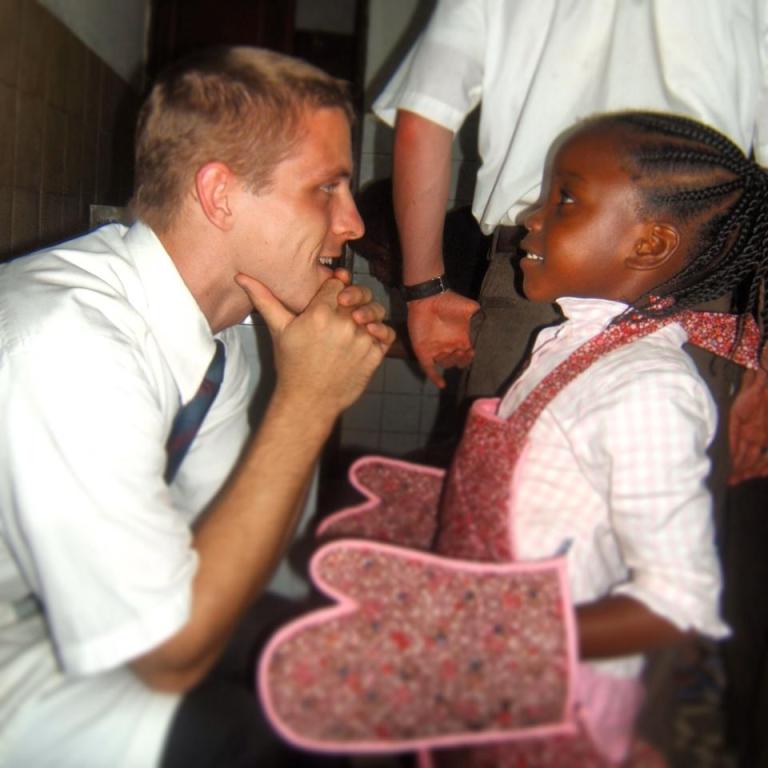 This is the note I sent to Maye’s support team just after she was jailed: “The situation is serious. If [she] is convicted, she could spend 25 years in prison.” She was twenty-four years old at the time. Such a sentence would’ve kept her behind bars until she was forty-nine. If all twenty-seven charges had been answered with additional prison time, she could well have been looking at life in prison.
This is the note I sent to Maye’s support team just after she was jailed: “The situation is serious. If [she] is convicted, she could spend 25 years in prison.” She was twenty-four years old at the time. Such a sentence would’ve kept her behind bars until she was forty-nine. If all twenty-seven charges had been answered with additional prison time, she could well have been looking at life in prison.
In the bail reduction hearing, the public defenders chose not to reveal an important fact. Maye was pregnant. A few weeks after her incarceration, she had realized this. Her morning sickness was severe and kept her in the jail’s medical unit for long stretches of time. (I’m certain that the trauma she was enduring was also a part of her medical needs.)
Since I was aware of these facts, I was surprised that the two public defenders didn’t mention her pregnancy and its complications at the hearing. I met with them three days later. This is my record from my affidavit:
“I met with the public defenders on October 22nd, 2015, three days after the hearing, to voice my concerns. They explained to me that they had not mentioned Maye’s pregnancy nor her time in the jail’s medical unit because they feared that the judge would assume that a pregnant, black, single woman was probably also on drugs.”
Consider that. The public defenders had thought that the judge would assume stereotypes about Maye if her pregnancy were revealed. I asked flat out, “Are you telling me that the judge is racist?”
One of the public defenders responded, “Let’s just say he’s very conservative.” I’ll let the readers interpret what he meant by that.
I met again with the public defenders after I purchased the recording of the preliminary hearing and recognized that it had been altered. I asked the head public defender (RT) if he remembered saying, “Your honor? Innocent until proven guilty?” He answered that he did indeed remember and then asked, “Isn’t it in there?” I told him that it was not. He shook his head. I remember the look on his face vividly and his grim half-smile. It was not a surprised look but one of powerless acknowledgment, a “Yes, this happens and there’s nothing I can do about it” look. I still wonder how often he had seen the sort of misconduct I was pointing out.
My affidavit states this:
The judge’s words, which I heard him repeat at least twice (it is my impression that he repeated them four times, but I am testifying only to what I can be completely certain of) were, “In my court, she is guilty.” After the public defender, XXXXX, said, “Your Honor? Innocent until proven guilty?” the judge changed his inflection but not his words. He said, “In MY court, she is guilty.” After a few moments, the judge said, “Let me revise myself.” He then introduced the concept of “probable cause.” In the audio transcription, the entire portion of his declaring Maykela guilty has been editd out, as well as XXX’s reminder of the judicial standard. We hear [the judge] come in at point 8.14 saying, “We’re not presuming guilt, I changed my statement, but there is probable cause.” When he says, “I changed my statement,” he is referring to his statement, “In my court, she is guilty.” The context and reference were unmistakable in court, though not so clear in the audio recording as it stands now after editing.
The defendant was not up against only the charges, but against systemic racism itself.
I was in some mild state of shock after what I saw in the courthouse, and could only imagine what Maye was going through. As I looked at the judge, I had important but unvoiced questions for him. I will voice them now.
- Have you always lived in a predominantly white society? How do you prepare to treat members of a minority group fairly? What do you do to learn to love and respect those with darker skin than yours? (I will mention here that I have a close friend who serves as a judge in the same courthouse and who has learned Spanish in order to better serve Latino defendants. He has often written to people he has found guilty of particular charges and has followed their lives with encouragement, sending them notes of congratulations when they have reached an educational goal or gotten married. He has also faithfully attended Martin Luther King Day commemorations and supported Civil Rights causes.)
- Since you are a judge in Utah and in your sixties, you are either a member of the Church of Jesus Christ of Latter-day Saints or are familiar with the details of Church history and culture. Did you ever believe or teach that Blacks were cursed or that they were “less valliant” in a pre-mortal life than those born white? If you once believed such false doctrine (see the official repudiation in this essay). what steps have you taken to re-train your heart to see clearly?
(Since I will be copying this text and the link will not carry over, these are the words of the disavowal from the Church’s Race and Priesthood essay:
“Today, the Church disavows the theories advanced in the past that black skin is a sign of divine disfavor or curse, or that it reflects unrighteous actions in a premortal life; that mixed-race marriages are a sin; or that blacks or people of any other race or ethnicity are inferior in any way to anyone else. Church leaders today unequivocally condemn all racism, past and present, in any form.”) - When you notice racism in your thoughts or actions, how do you address it? How do you repent of it?
- What actions do you take to diversify your world so that your actions reflect equal and universal respect for all humans?
I have done some often painful self-reflection since the events I’m recording here happened. My conclusions about myself are that I still need to watch my words, actions, and thoughts for arrogance, self-centeredness, and any sense of entitlement. It is a daily challenge for me as I press forward. My personal scriptural theme is Isaiah 58: 12:
“Thou shalt raise up the foundations of many generations; and thou shalt be called, The repairer of the breach, The restorer of paths to dwell in.”
For all of us who want to “repair the breach” within the human family, there is simply no time for self-pity, self-justification, or procrastination. The day is far spent.
I
.













